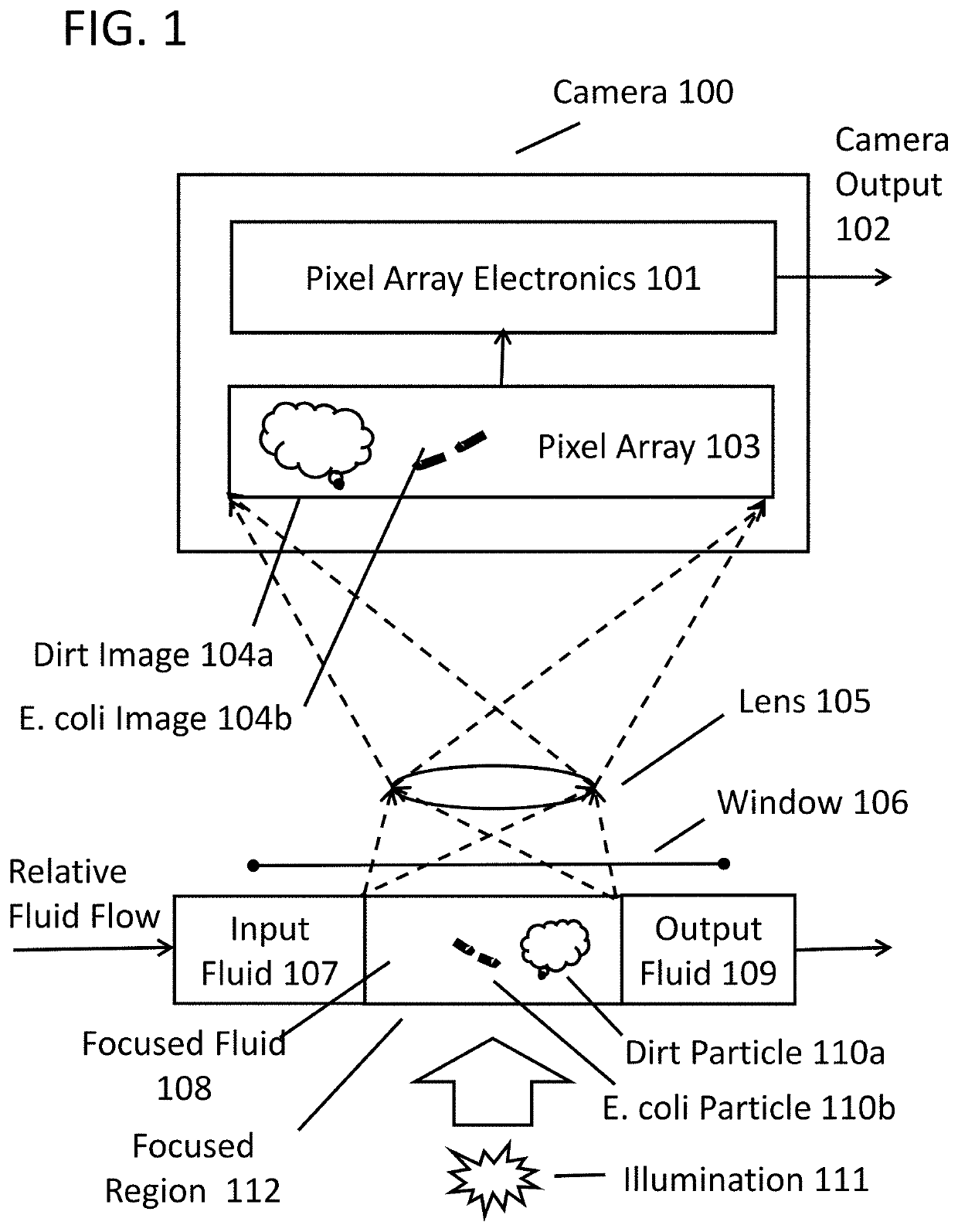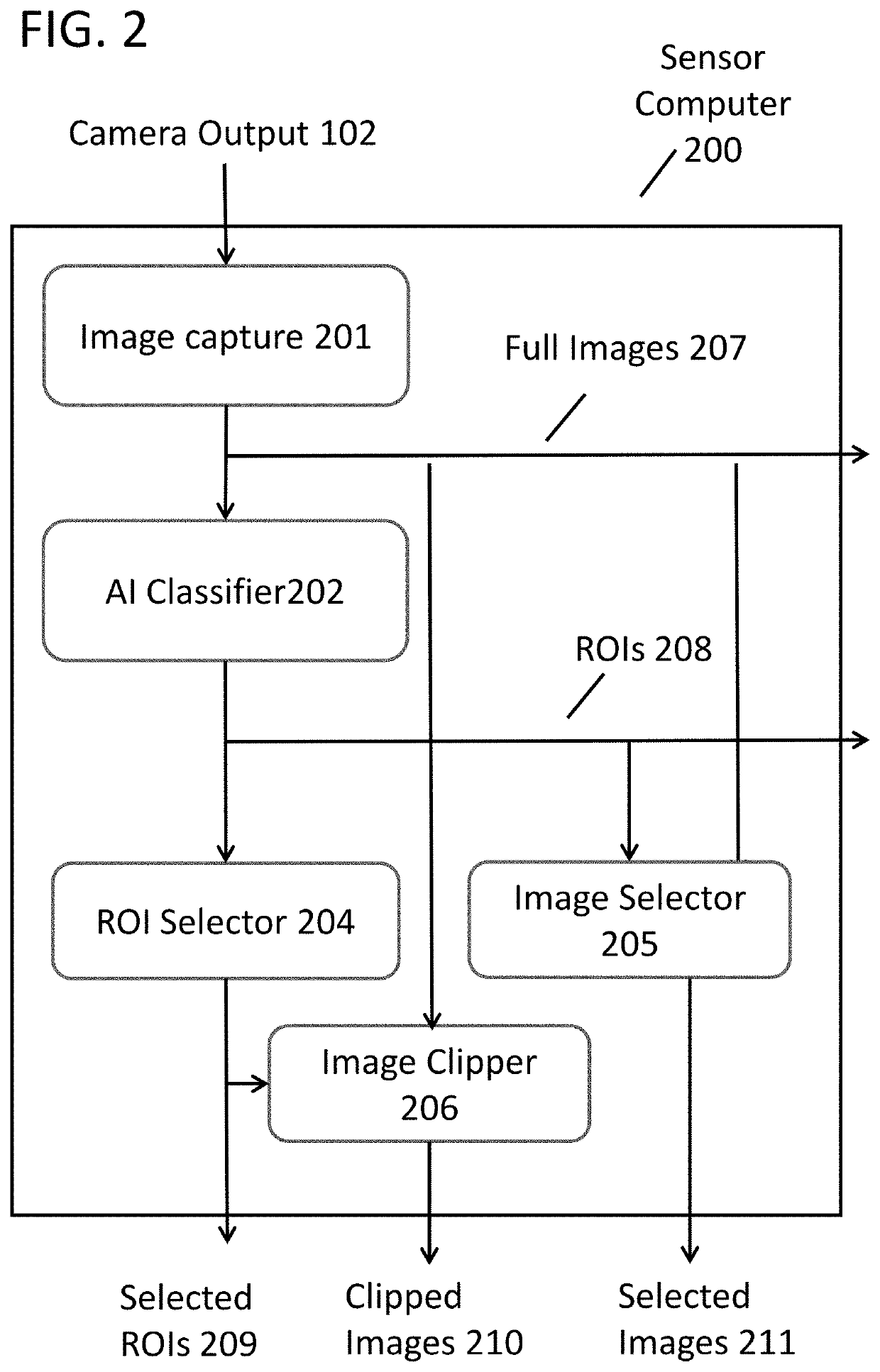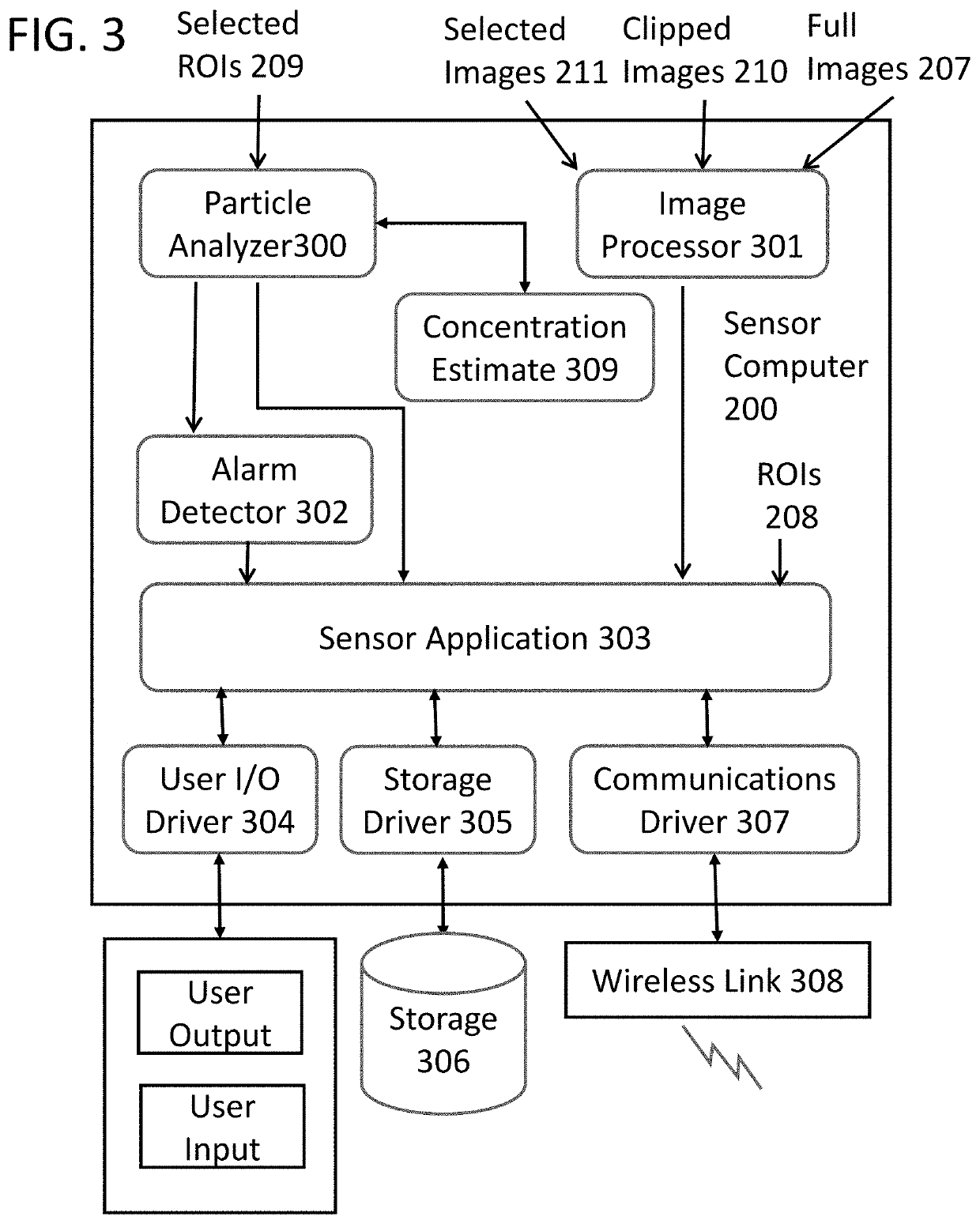Fluid Suspended Particle Classifier
- Summary
- Abstract
- Description
- Claims
- Application Information
AI Technical Summary
Benefits of technology
Problems solved by technology
Method used
Image
Examples
first embodiment
[0302]In the first embodiment, there is a pair of microscope slides or portions of slides or the equivalent with the fluid flowing between them, on a microscope stage. The microscope can be standard light-field, dark-field, confocal, polarizing, and so on. The slides need not be fully transparent. The two slides form a channel, the top slide being the window. There is a gasket such as silicone glue between parts of the slides that prevents leakage. The water or other fluid is carried in and out by flexible tubes situated at the ends of the slides. The microscope can be used to view the focused region in the channel at any time. A pump or other means may be required to get the water or other fluid to flow, or the container of water to be analyzed can be placed higher than the channel, so that gravity moves the water. The water may already be flowing or be under pressure depending on the source.
[0303]Sensor Hardware
[0304]The software runs on a Raspberry Pi single-board computer or oth...
second embodiment
[0324]Much of the first embodiment is used in the second, so here mainly differences are described.
[0325]A remote system fits in a suitcase-size Pelican-type box, which is water-tight, with glands to protect cables and hoses entering the box. A solar array provides power, with a storage battery. If a good fluid-flow-based energy harvester becomes available, it can be used instead of the solar array.
[0326]The water flows through a channel made with 3D-printing using SLA stereo lithography, which can be water-tight. Hoses bring water from a river or other flowing source, or a static water source with a pump or gravity feed or driven by water pressure inside an external distribution pipe, through an optional filter. If the water is static, the box can be placed lower down, and a hose brings the water down by the force of gravity. The exit water is discarded or saved, such as by adding it back into a pre-existing flow. Internal-network monitoring, i.e. INM, can be accommodated by attach...
third embodiment
[0331]This is like the second embodiment, except that the camera is replaced with a cellular smart telephone with an adapter to the optics tube such as is used for adapting cell phones to standard monocular, binocular or trinocular microscopes. The electronics are simplified to the extent that the radio link is provided by the telephone, and the telephone executes the AI software that classifies the particles, and if desired it stores the local images on its local Flash storage, and also if desired, it handles the alerts and remote access. The cell phone has a special App for this purpose. The raspberry Pi single-board computer may be possible to omit, and it may be possible to replace it with a simpler Arduino single-board computer, which has lower power consumption but is much slower, being incapable of handling video. If the illumination source is used in a flashing mode in order to freeze the moving particles for imaging, then there is custom electronics to do it. The cell phone...
PUM
 Login to View More
Login to View More Abstract
Description
Claims
Application Information
 Login to View More
Login to View More - R&D
- Intellectual Property
- Life Sciences
- Materials
- Tech Scout
- Unparalleled Data Quality
- Higher Quality Content
- 60% Fewer Hallucinations
Browse by: Latest US Patents, China's latest patents, Technical Efficacy Thesaurus, Application Domain, Technology Topic, Popular Technical Reports.
© 2025 PatSnap. All rights reserved.Legal|Privacy policy|Modern Slavery Act Transparency Statement|Sitemap|About US| Contact US: help@patsnap.com



